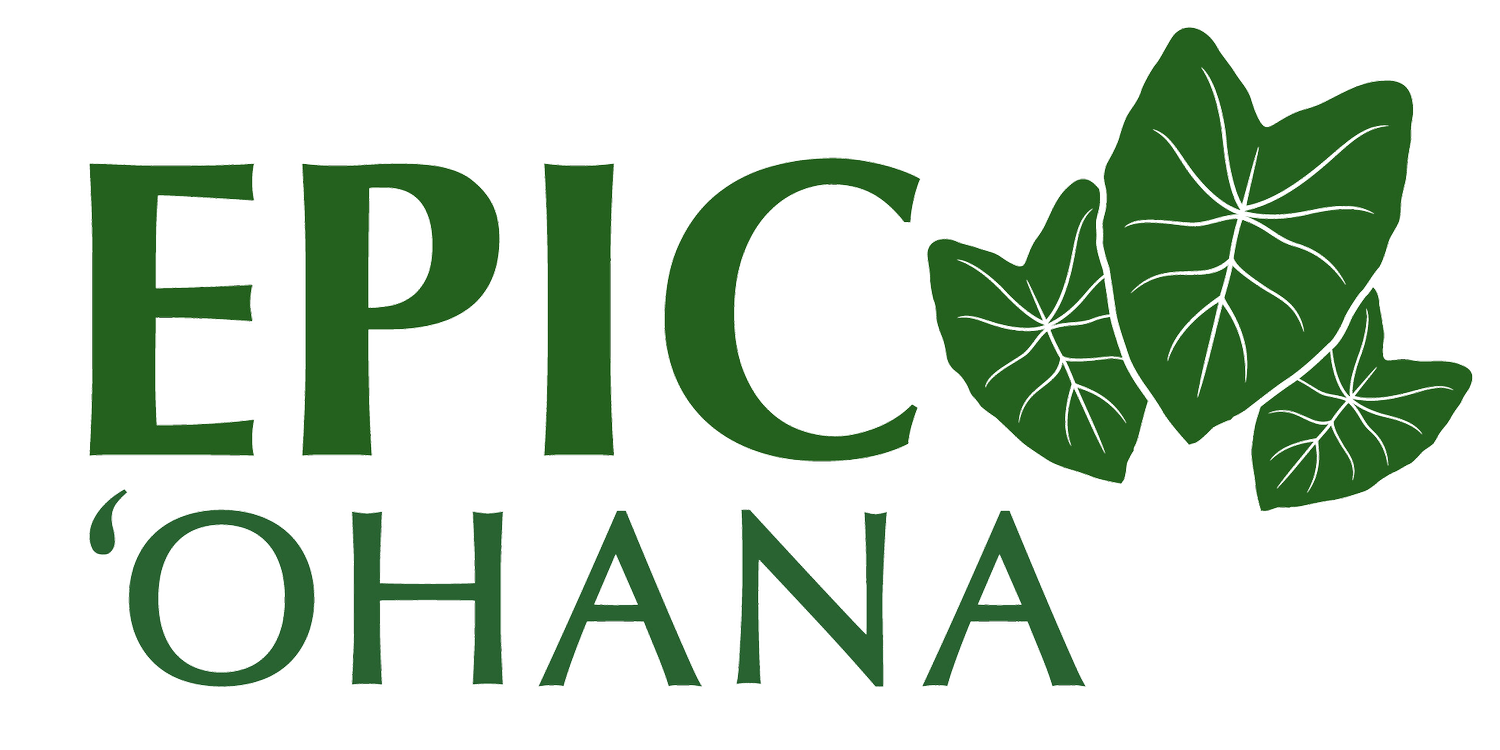November 2022 Staff Spotlight - Kim Nabarro
1. What is your role at EPIC ‘Ohana?
I serve as a Parent Partner within the Family Wrap Hawaii department. As a mom with lived experience in the Child Welfare System (CWS), I walk alongside parents who are currently navigating CWS as a peer support, called a Parent Partner. I also provide peer support within the Makua Allies Program as a Makua Ally (meaning parent ally). In that role, I partner with women who may be struggling with addiction during their pregnancy. I focus on helping them attend regular prenatal visits, connecting them to helpful service providers and resources such as home visiting programs and housing programs, and help them see the value of using these available supports. Being in recovery myself, I offer my lived experience to align with these women so they don’t feel judged. I also help them identify as moms. These moms often feel they don’t deserve to be a mom, or that they are capable of being a mom and have often been told that it would be best that their children were raised by someone else. In my work, I strive to help these moms understand that they can become the best version of themselves for their keiki and reclaim belief that they can be a mom and raise their children.
2. What is your favorite EPIC ‘Ohana story?
One of our moms referred to the Makua Allies program during her pregnancy had already had prior involvement with CWS and her older children had been placed with her mom, the children’s maternal grandmother. This mom was trying to repair her relationship with her older children, but it was a struggle, and she was now preparing for another child. She was involved with the criminal justice system, was unemployed, and was living at a substance abuse treatment center. When we started working together, her fear was that in the past, when she had custody of her children, she wasn’t able to maintain her sobriety. Whenever she had tried, she inevitably hit a wall of discouragement and despair. Because she was only able to secure entry level jobs, it felt like a dead end and she questioned if it was really possible to get anywhere in life. Without hope, the familiarity of the addiction lifestyle was hard to resist. Getting high, and having her mom raise her kids, is what felt safe because it felt normal.
When I first met her, she hadn’t played an active role in her children’s life for a long time. Being a mom didn’t have much meaning to her. In our work together we began to have conversations about significant ways she could reconnect with her children. “What does an engaged mom look like?” I’d ask. Participating in their routines, attend sporting events and other activities, being able to house them under one roof, were some of her answers. Also having a meaningful job or career was important too.
This mom is now employed, is a candidate for a rental assistance program (which would enable her children to live with her), is pursuing a college degree in human services, is part of a cohort for students in recovery, and is a recent graduate of the Peer Support Specialist training with the Pu‘a Foundation. As part of that training, she will soon start a Parent Partner internship at EPIC ‘Ohana.
3. How would you describe EPIC ‘Ohana in one word?
Classy. I feel that the way we are trained to carry ourselves, and how we do the work, is with class. What that means to me is to treat people with the utmost respect, whether it is a service provider, community member, parent, or family member. To be classy entails us to step back and assess the circumstances or situations we encounter, and figure out the best way to approach the situation with empathy, and upholds the commitment to interact with everyone we come in contact with, with respect and dignity.
4. What would you like others to know about EPIC ‘Ohana?
We walk our talk to set an example to the communities we serve. EPIC helps each of us grow; it is a place of healing and learning and growing. Besides the work we do, there are things that are built into the EPIC ‘Ohana that ensure that we, as Parent Partners, as employees, stay healthy. For example, we are encouraged to check in with ourselves so that we can come from a space of healing, and we are given the support and resources to make the time to ensure that happens.
I see us as ambassadors of aloha and, as such, we model aloha whenever we interact with people. People can feel our aloha. My hope is that everyone we come in contact with will take it upon themselves to act that way too. That is how aloha and healing is spread into communities. It’s through actions that people can see that it’s possible to come to one’s healing, and desired outcomes or goals in a way that honors aloha.
5. What is your personal philosophy?
Everything I have been through was for a purpose, and it aligns with the work I do today. I also believe there is always hope, and that my purpose is to kindle hope in others. I strive to help them reconnect with something inside themselves, a deep inner knowing or belief that recovery is possible and that life does get better. You could not have told me five years ago that I would be doing what I am doing and living such a purposeful life. I want others to know that can be true for them too.
6. What are you listening to/reading these days
Book: The Warrior Within by DJ Vanas /Song: Egypt by Cory Asbury

